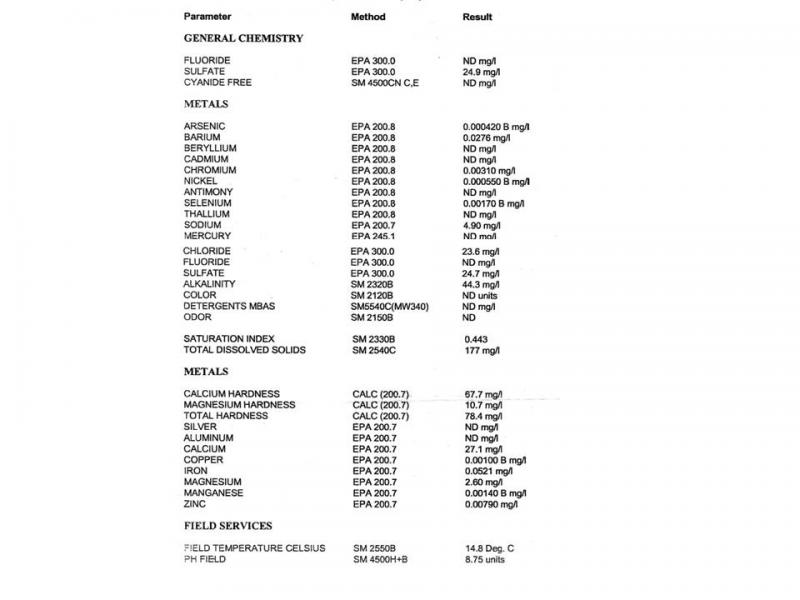nutty_gnome
Well-Known Member
I received my municipal water report (see the picture below for the full details) and I have some questions. Here is the profile as I see it:
Ca - 27.1
Mg - 2.6
Na - 4.9
Fe - 0.0521
Sulfate - 24.9
Chloride - 23.6
PH is 8.75.
Now the tricky part is that the report is showing:
'Calcium hardness - 67.7',
'Magnesium hardness - 10.7'
and the sum of those as the 'Total Hardness - 78.4'
Question: I dont know how to interpret this for Ez Water Calculator which requests Bicarbonate or Alkalinity. How do I tranlsate the 'hardness' info to the required information?
As background, I've brewed around 30 all grain batches with this water. For most of that I have been useing 5.2 buffer. Even still, I know that this water will not brew anything traditionally darker than around 20 SRM without a very very harsh taste to it. Low SRM (below 12) are ok. I now see that calcium and magnesium and sulfate are all very low and I need to start working on water additions.
Any hint or suggestions are welcome. The next beer is supposed to be lightly colored, mid strength American IPA.

Ca - 27.1
Mg - 2.6
Na - 4.9
Fe - 0.0521
Sulfate - 24.9
Chloride - 23.6
PH is 8.75.
Now the tricky part is that the report is showing:
'Calcium hardness - 67.7',
'Magnesium hardness - 10.7'
and the sum of those as the 'Total Hardness - 78.4'
Question: I dont know how to interpret this for Ez Water Calculator which requests Bicarbonate or Alkalinity. How do I tranlsate the 'hardness' info to the required information?
As background, I've brewed around 30 all grain batches with this water. For most of that I have been useing 5.2 buffer. Even still, I know that this water will not brew anything traditionally darker than around 20 SRM without a very very harsh taste to it. Low SRM (below 12) are ok. I now see that calcium and magnesium and sulfate are all very low and I need to start working on water additions.
Any hint or suggestions are welcome. The next beer is supposed to be lightly colored, mid strength American IPA.



